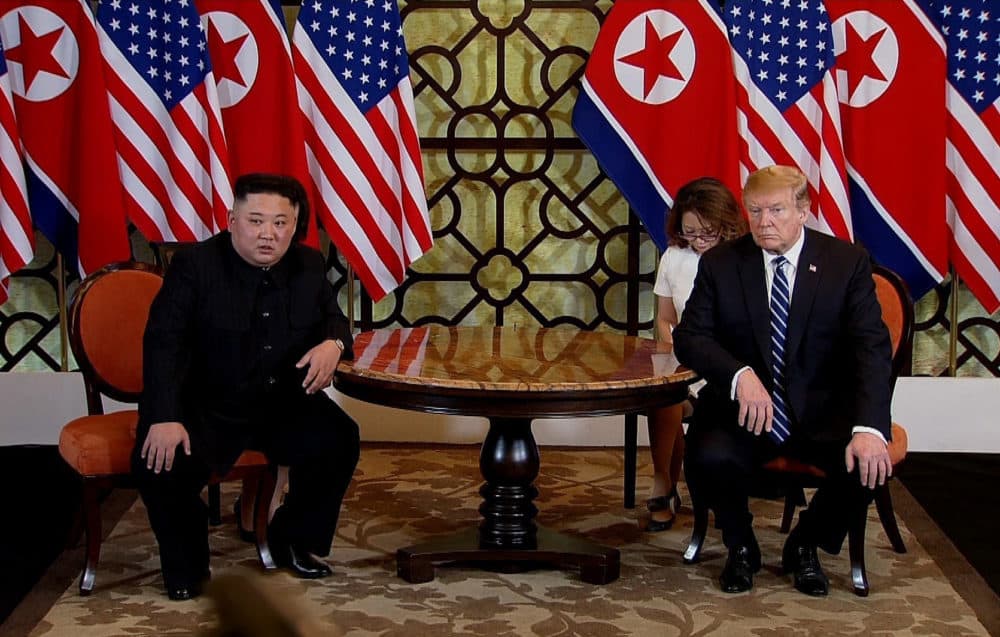Advertisement
Former U.S. Ambassador: Trump Had No Leverage Going Into North Korea Summit

The summit between President Trump and North Korea's Kim Jong Un in Hanoi, Vietnam, ended Thursday without any deal. The two sides failed to reach an agreement due to a standoff over U.S. sanctions on the reclusive nation.
Trump had no choice but to reject the deal Kim presented, says Nicholas Burns (@RNicholasBurns), former U.S. ambassador to NATO and a professor at the Harvard Kennedy School of Government. Kim said he would be willing to consider dismantling the nuclear enrichment facility at Yongbyon that's been at the crux of denuclearization talks, but only if the U.S. removed all of the sanctions on North Korea first.
"The deal that was offered by Kim Jong Un ... was not a deal the president possibly could have accepted because that leaves North Korea with all of its nuclear weapons," Burns tells Here & Now's Eric Westervelt (@Ericnpr). "The president, hopefully, and his team need to learn from this. You can't send an American president halfway around the world without some specific expectation that there's going to be an agreement after months and months of negotiations."
"The president has thought, I think, that just the weight of his own personality and personal relationship with Kim would win the day. It didn't."
Nicholas Burns
Trump wasn't wrong to try diplomacy, Burns says, but he has relied too much on his "buddy relationship" with Kim.
"The president has fawned over him, which I find distasteful given the fact that Kim Jong Un is probably the worst violator of human rights in the world today," he says. "That's always been the danger here that we would give him credibility."
Trump also failed to empower his negotiators and gave up too much leverage when he suspended U.S.-South Korean military exercises at the first summit, Burns says.
"The president has thought, I think, that just the weight of his own personality and personal relationship with Kim would win the day. It didn't," Burns says.
White House aides have stressed that Trump stood strong, evoking the 1987 Reykjavik summit between President Ronald Reagan and then Soviet Premier Mikhail Gorbachev. That meeting also ended without a deal, but laid the groundwork for a future agreement.
Advertisement
But Burns says what happened in Hanoi is not the same.
"It's hard to see how this situation now improves. The dictator of North Korea has essentially said he's not going to play ball with us," he says. "That's why you've got to go back to pressure, the sanctions, getting the Chinese, the Russians, the Japanese and the South Koreans back into this with us. ... That has to be what we do next."
Alex Ashlock produced and edited this interview for broadcast with Kathleen McKenna. Samantha Raphelson adapted it for the web.
This segment aired on February 28, 2019.
